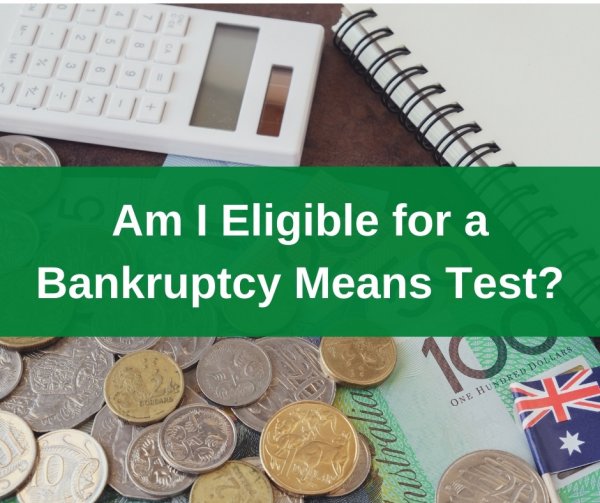If you are in Australia and you have debt problems, you might be thinking of taking a bankruptcy means test to determine if declaring bankruptcy is a viable option for you to get your debts forgiven.

One of the things that we never want to happen to us is being knee-deep in debt. Being bankrupt does not have a good tone to it for most of us, but in certain situations, it can be an effective, if not the only way to get out of debt.
If you are in Australia and you have debt problems, you might be thinking of taking a bankruptcy means test to determine if declaring bankruptcy is a viable option for you to get your debts forgiven. Other countries have this test for people who are looking into bankruptcy as their only option to get out of debt.
While Australia does not have a bankruptcy means test, the country has certain criteria that can help determine if a person is eligible to declare bankruptcy. In this article, we’ll discuss basic facts about bankruptcy in Australia.
There is no Debt Threshold
One of the most common misconceptions people have about being eligible to declare bankruptcy in Australia is that there is a minimum or a maximum debt threshold.
Actually, there is no such threshold. Regardless of how low or how high your debt is, the amount does not affect your eligibility. There are only two essential requirements to being able to declare bankruptcy:
- You cannot pay your due debts, and
- You are in Australia, or you have a connection to Australia, whether it be residential or business-related.
As long as you meet both criteria, you are automatically eligible to declare bankruptcy. But that does not always mean that declaring bankruptcy is the best option for you. You will also have to consider your other circumstances.
Other things to Consider
Whether bankruptcy is the best option for debt removal or not depends highly upon the individual circumstances of each person. There are a lot of factors to consider, but we will be looking at some of the most important ones to look at.
First, if you own a home, being declared bankrupt may mean losing your home in order to repay a debt. Keeping a family home is allowed only in certain situations, so you might want to look into these situations to make sure that you still get to keep your home despite declaring bankruptcy.
Second, a declaration of bankruptcy may make you ineligible to get or maintain a license in certain industries. If you are presently working in finance, real estate, and other industries, you will need to look at the requirements for holding a license and how a declaration of bankruptcy affects your status as a license holder.
Third, declaring bankruptcy has long-term effects. That declaration will stay on your credit status for years on end. Even if you eventually become solvent again, you can and will still find it hard to get loans because creditors will see your recent bankruptcy status for up to a few years from the end of your bankruptcy.
With all those consequences in sight, bankruptcy should only be considered when you have no other options left to remove your debt. If you still think that bankruptcy is the best way for you, it would still be best to consult with a trusted financial advisor.
Other Options You Might Want to Consider
Let’s say you looked into bankruptcy quite deeply, and you decided that it’s not the best option for you, and you want to look into possible alternatives to remove debt. There are certainly alternatives out there that can allow you to make your debt more manageable, and these alternatives are not as harsh in the long term as bankruptcy is. Let’s take a look at a few of them.
Debt arrangement or debt restructuring involves changing the terms of your agreement. It might involve reducing the interest rate or reducing the regular payments while having to pay for more months or more years. If you are still earning, but your current salary is not enough to pay off your current payments, you might be able to work out an alternative arrangement with your creditor to make payments more manageable.
If you have multiple debts with a single creditor, you can also consider debt consolidation, where you merge all your debts into a single loan. This might be a good option for you because it can result in lower interest rates, and the fact that your debt is consolidated means that there are lesser things to stay on top of.
Refinancing is also a viable alternative that can be applied to different kinds of loans, including mortgages so that you can end up with a more practical debt in place of the old one.
Conclusion
Ultimately, whether or not declaring bankruptcy is the best option really depends on your personal circumstances. The long-term consequences are quite harsh, though, so you should consider it as a last resort when no other alternative is available to you.

